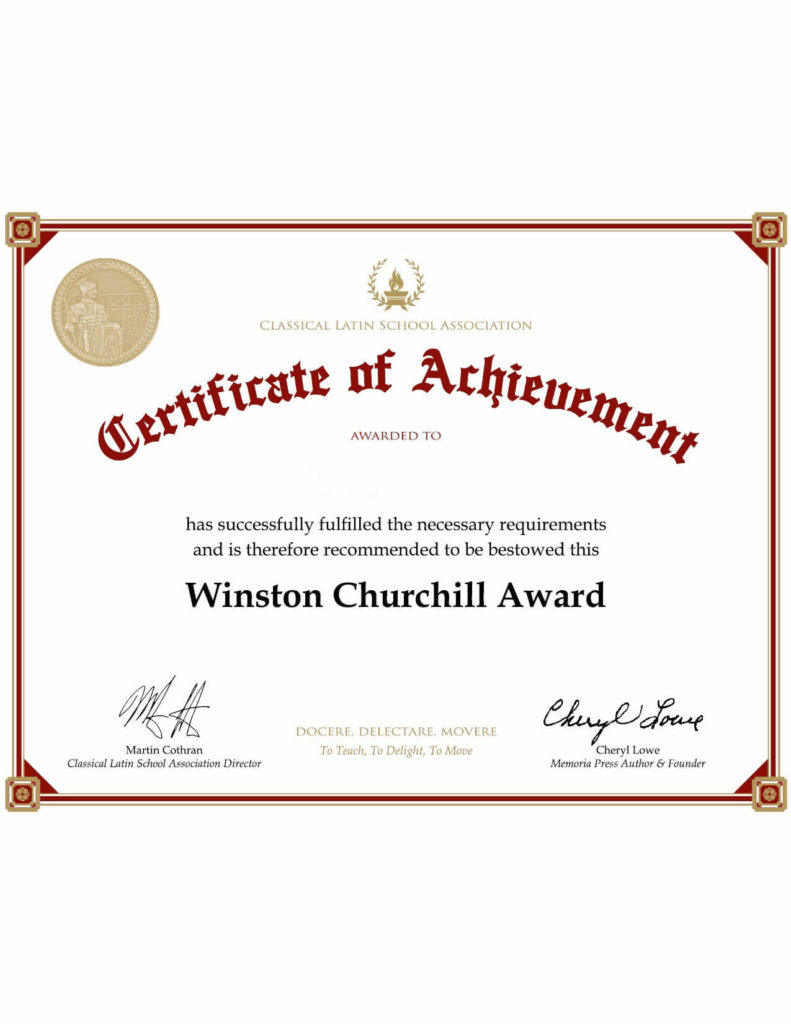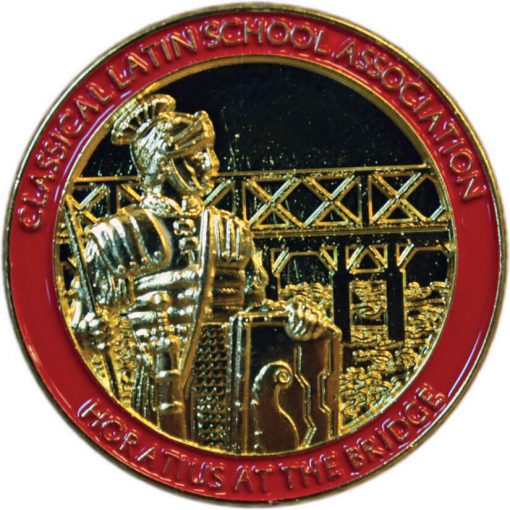Students taking Famous Men of Greece and Literature D (The Trojan War, Bronze Bow, Anne of Green Gables, etc – these are usually 7th graders) are required to memorize 30 stanzas of Thomas Babington Macaulay’s 1842 poem, Horatius at the Bridge. Further, every student is challenged to memorize and present a full recitation of all 70 stanzas (589 lines) in the spring. Students who accomplish this feat become members of our Horatius Society and are awarded the Winston Churchill Prize (certificate, medal, and pin).
Members of the Excelsior Horatius Society
2019-2020
Anya, Derek, Breck, Eden A.
2022-2023
Cora, Alex, Deklan, Eden G.
2023-2024



You may recognize portions of Horatius from the movie The Darkest Hour when Churchill recites stanza 27 on the subway with English men, women, and children.
Then out spake brave Horatius,
the Captain of the gate;
“To every man upon this earth
Death commeth soon or late…
It is a stirring scene but more significantly it shows what is possible when people carry common words in their hearts. In a moment, the shared words can come to life and provide connection, courage, and resolve in times of fear and danger.
From the Memoria Press site:
The Lays of Ancient Rome are five ballads written by the Englishman Thomas Babington Macaulay and published in 1842. These ballads (lays) celebrate events and heroes in ancient Roman history, and Horatius at the Bridge is the most famous of Macaulay’s ballads. Ballads are narratives that are composed and sung orally. In more primitive societies, before the development of writing, they were an essential means of remembering and celebrating the past.
There are, however, no existing ballads from the ancient Romans. Macaulay thought these ballads must have existed and probably served as a primary source for Roman historians, such as Livy. And so Macaulay wrote The Lays of Ancient Rome, ballads that celebrate famous events in Roman history, written in a style and meter that would be appropriate for the ancient Romans. The Lays carry messages about values, patriotism, courage, and sacrifice that Macaulay considered relevant to his own time. Horatius at the Bridge is the ballad that “might have been,” had it not been lost in time. Macaulay published his Lays in 1842, and considered them a trifle. His trifle was a publishing phenomenon and since its first release, has never been out of print.
Recommended Curriculum:
Horatius at the Bridge Complete Set and Winston Churchill Certificate
(credit for idea of the society and wording on this page come from Highlands Cottage School in Nashville)
